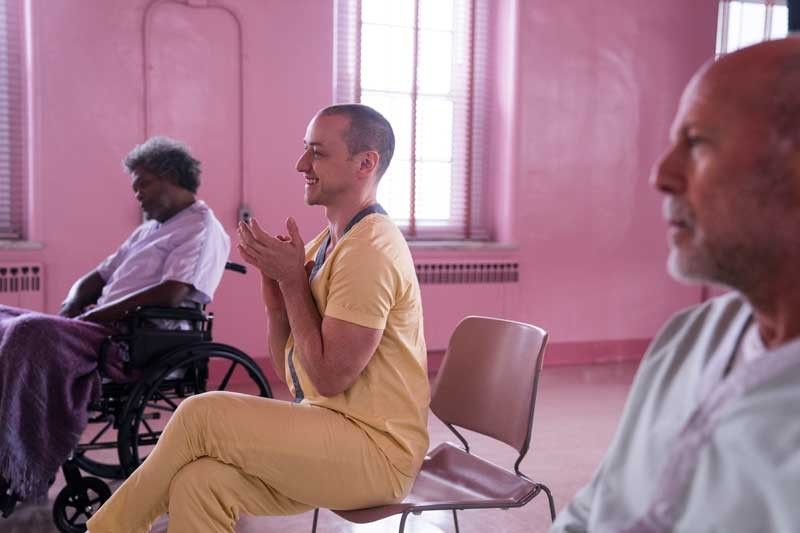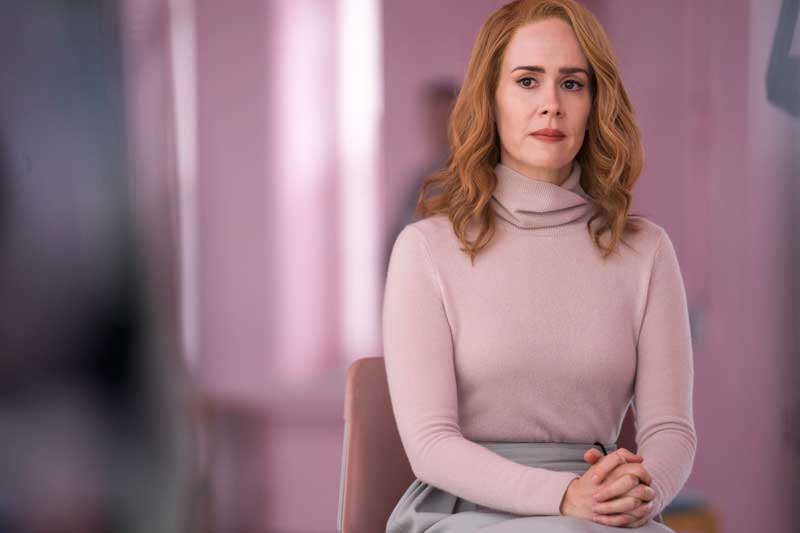Glass: Not another superhero movie

M. Night Shyamalan’s ’Glass’ comes in with the punchy descriptor ’comic book thriller’ – a concept you may need time to wrap your head around.
MANILA, Philippines — These days, it seems that everyone wants to make a superhero film. Glass says it isn’t one. The movie comes in with the punchy descriptor “comic book thriller” – it sounds like a concept you’ll need time to wrap your head around. Spoiler: it’ll only take the entire duration of the movie to see why.
Glass is last in a trilogy which began with M. Night Shyamalan’s Unbreakable (2000) starring Bruce Willis as David Dunn and Samuel L. Jackson as Elijah Price, and Split (2016), which featured James McAvoy as Kevin Wendell Crumb. It’s Shyamalan’s culmination piece of sorts, a long con if you will.
The first two films did little to set the tone for the directional take on Glass. Though incongruent with the thematic structure of Unbreakable and Split, Glass does have classic M. Night twists and turns. It’s unique in the way its story continues to unfold outward, giving you more questions, and then giving you answers to those questions, and sending you off with details you wouldn’t think to ask for in the first place.
It’s easy to get lost in all that’s going on. There are four main characters this time (with the addition of Sarah Paulson as Dr. Ellie Staple) with big names backing them up and even bigger stories to tell. It falls short this way, underexposing each protagonist, likely due to a tight budget and allowable screen time. The characters remain the highlight of the film despite that; there were no performers that overpowered, just a cast that managed to make the most out of the material they were given.

Sarah Paulson plays the role of a psychiatrist and works with patients who claim to have special powers.
The movie succeeds in being mildly entertaining enough not to write it off completely. Its most interesting quality is in the irony embedded throughout the film. One seemingly covert and underplayed detail is its gritty equilibrium. Much of the movie is visually consistent, balanced even, despite it primarily taking place in an institution (somewhere that is decidedly unbalanced).
When the characters come to from being briefly “subdued” by Dr. Ellie Staple’s disbelief in their “abilities” the film later gains momentum when colors become more prominent. Purple for Elijah, yellow for Kevin, and green for David when they take on their respective supervillain/superhero alter-egos; it’s also at this point in the film when you notice that by comparison, the unwavering support from David’s son, Elijah’s mother, and even Kevin’s former hostage has turned them into something akin to sidekicks — it’s like literally watching a comic book come to life.
Yet, the movie doesn’t run much deeper than that, despite its “pivotal moments” or any perceived meta. The way the story guides you to its overarching theme and the ending is quick, straightforward, and painless if you’ve got the stomach for it. Fourth walls? Breaking. Glass? Shattering. You think that part’s the end? Check the clock – there’s still 10 minutes left to remind you what this movie is about, what it’s called, and to sneak in another twist just drive a point home.
It‘s earnest in a way, that the movie went through all the trouble to make sure I got where it was coming from. It felt like there was little room for me to misunderstand anything toward the end, but it did make me wish they could have done something more and fully utilize such a concept.
Glass is what you’d get if you were to hold X-Men: First Class at gunpoint and you told them they have to make their case now, but in the end, they spend too much time going into the finer details of why, what, and how – you’re almost sorry you have to pull the trigger. Their similarities start with James McAvoy cast in a role that requires him to be balding and sad; it meets in the middle where the story tries to drill it in your head that being different, feeling different, and being alienated has been at the crux of much of society’s problems – and it ends where Glass tries to explain too much, telling us that it isn’t a superhero movie, when it could have benefited from just showing us instead.















